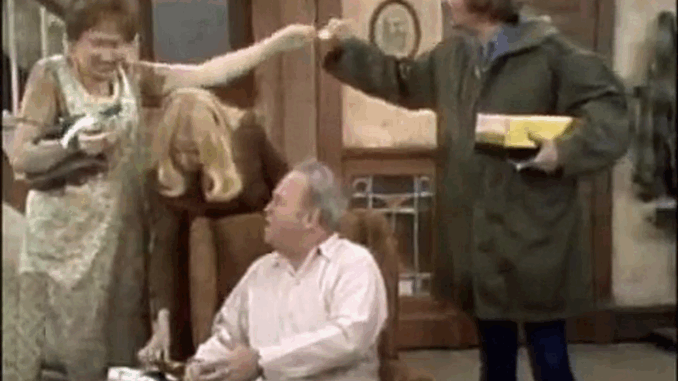
New York, NY – In the pantheon of classic television, few shows have captured the pulse of America’s social and political divide like All in the Family. In the episode “Writing the President” — aired during the show’s second season — the generational and ideological clash between conservative Archie Bunker and his liberal son-in-law Mike Stivic reaches a boiling point over something as seemingly simple as a letter to the President of the United States.
A Letter Becomes a Lightning Rod
The plot unfolds when Mike reveals he has written a letter to the President expressing his opposition to the Vietnam War. Archie, a staunch supporter of the government and military, reacts with predictable outrage. To him, writing the President with criticism borders on treason. To Mike, it’s a fundamental exercise of democratic freedom.
What ensues is more than just a family argument. It’s a raw, honest portrayal of a country wrestling with its identity during one of the most turbulent decades in American history. Through their heated exchange, the show exposes the tension between blind patriotism and critical citizenship — a debate as relevant today as it was in 1972.
Comedy as a Vehicle for Civic Dialogue
What makes “Writing the President” so enduring is its balance of biting humor and deep insight. Archie’s blustering defense of “My country, right or wrong!” is played for laughs, but it also reflects the mindset of many Americans who feared that dissent equaled disloyalty. Mike’s idealism, on the other hand, represents the voices of a younger generation determined to hold their leaders accountable.
As always, Jean Stapleton’s Edith adds warmth and humanity to the story, often serving as the emotional bridge between the two men. Her quiet empathy contrasts with the ideological shouting match, reminding us that love and understanding are possible even in deep disagreement.
Television That Dared to Think
By addressing controversial topics like war, protest, and patriotism on primetime television, All in the Family proved that sitcoms could be a platform for national reflection. “Writing the President” didn’t offer easy answers — and that was the point. It invited Americans to question, to debate, and most importantly, to speak out.
In an era when political polarization continues to dominate headlines, the episode serves as a poignant reminder of the power of civil discourse. It also underscores the importance of shows like All in the Family that dared to put uncomfortable truths on the screen — wrapped in laughter, but layered with meaning.